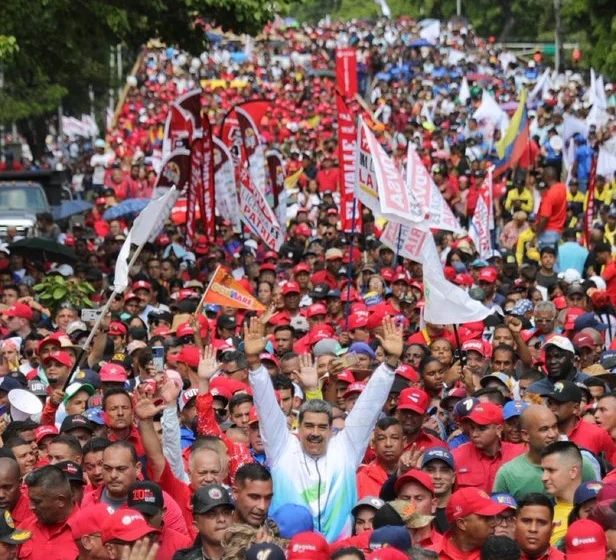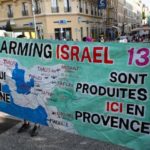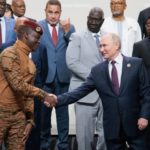Here goes the article of Thierry Deronne:
THE VICTORY OF NICOLAS MADURO AGAINST THE EXTREME RIGHT AND THE INTERNATIONAL MEDIA
From the beginning, we felt that the strong influx of voters in the presidential elections of July 28 knew how to counterpose the socialist program of outgoing President Nicolas Maduro to the “Milei-style” privatization program of the extreme right-winger Edmundo Gonzalez. At noon, two “exit polls” of private firms gave Nicolás Maduro a lead of at least 10 points: the Venezuelan Hinterlaces and the U.S. Lewis and Thompson (Miami). A third private firm (CMIDE 50.1), relayed by former President Rafael Correa, giving about the same advance.
More than a thousand international observers are present – the Spanish Rodriguez Zapatero, Lula’s special envoy Celso Amorim, Roland Lumumba, Nelson Mandela’s son, the former Honduran President Mel Zelaya. Others are from China, the African Union, but also and above all professional electoral organizations (CEELA, Carter Centre, UN, etc…) and many journalists, intellectuals such as Ignacio Ramonet, Atilio Boron or Irene Leon, left-wing parties and social movements around the world, such as the Landless Movement of Brazil. Around midnight, the suspense ended, when the National Electoral Center made public its first ballot with 80% of the votes counted, and an irreversible trend. Nicolas Maduro was winning with 51.2%, against Edmundo González – 44.2%.
The media dreamed of violence but the presidential elections in #Venezuela took place peacefully and correctly according to the international observers that included the UN team, and the Carter Center or the Latin American Council of Electoral Experts (CEELA). The Latin American left like the President of Honduras Xiomara Castro, the President of Cuba Miguel Diaz Canel, the President of Bolivia Lucho Arce, the former President Rafael Correa, the Sao Paulo Forum (123 Latin American left-wing parties), or the Puebla Group (think tank of former presidents and progressive intellectuals), social movements such as the Landless of Brazil, etc… very early congratulated the Bolivarian candidate for a victory obtained in such difficult conditions (social effects of the 930 Western sanctions, USA and EU combined).
As expected, Washington and its Latin American allies are questioning the result, and the main media speaks of “fraud” to justify violence. The Argentine Javier Milei immediately asked the Venezuelan army to carry out a coup against Maduro: https://x.com/JMilei/status/1817760569404842400
But with five centuries under their belt, the Bolivarian people have learned to resist trials even worse than these.
Thierry Deronne, Caracas, July 29, 2024.
URL of this article: https://venezuelainfos.wordpress.com/2024/07/29/victoire-de-nicolas-maduro-contre-lextreme-droite-et-linternationale-mediatique/
Translation by Posadists Today from the French version. Original published by Venezuela news in destabilization and violence of the right, Economic war, history of the Bolivarian revolution, Media lies / disinformation / propaganda, social movements29
This article by Thierry Deronne is followed by another published on the same site written by Jodi Dean, American political scientist, professor in the department of political science at Hobart and William Smith Colleges in New York, professor of human sciences at the faculty of philosophy of the Erasmus University in Rotterdam, BA in History at Princeton University, MA and PhD at Columbia University, she currently teaches political theory and media studies in Geneva and New York. Jodi Dean’s article testifies to the cleanest and most advanced electoral system in the world, that of Venezuela; and to the strength of the Venezuelan people in their fight against imperialism, to build, despite all the sanctions and attacks, a socialist society of peace and solidarity.
The Posadists Today rejoice in this new victory for Nicolas Maduro and the people of Venezuela. This victory forms part of the continuing process of socialist advance in Latin America, and gives an example in democracy to the whole world.
Here goes Jodi Dean’s article:
“THIS IS WHAT DEMOCRACY LOOKS LIKE”: CHAVISMO’S NEXT PHASE
By professor Jodi Dean’s ‘Reflections from Caracas’, 30.7.2024
Shortly before midnight on 28 July, Venezuela’s National Electoral Council (CNE) announced that — with 80 percent of the over 20 million votes counted — the trend was irreversible: Nicolás Maduro had been re-elected president of Venezuela.
According to the CNE, Maduro received 51.2 percent of the vote, while his primary opponent, the little-known Edmundo Gonzales, received 44.02 percent. With that result, it was clear that the Venezuelan majority chose to continue the project of Bolivarian socialism introduced by Hugo Chavez at the end of the nineties. Recognizing the economic turn-around of the last two years and proud of their achievements in building 5.1 million housing units, securing food sovereignty, and deepening communal democracy, Venezuelans re-elected Maduro for a third six-year term.
A former ambassador to Argentina, the opposition candidate Gonzales replaced far-right leader Maria Corina Machado as the candidate of the Unity Platform after Machado was disqualified from running. Machado has long been an outspoken critic of Chavismo, supporting US sanctions and advocating foreign intervention in the country. In 2018, she asked Benjamin Netanyahu for military assistance in dismantling the Maduro government. Machado has close ties in the United States. In 2009, she was a Yale World Fellow. On June 23, 2024 she spoke at a National Endowment for Democracy awards ceremony in Washington, DC. She has been nicknamed the new “iron lady” after her idol Margaret Thatcher. In contrast, Maduro supports the Palestinian liberation struggle, linking it to the struggle of the indigenous peoples of Venezuela against colonial genocide.
The United Socialist Party of Venezuela (PSUV) organized over 200,000 neighborhood units across the country as part of its electoral strategy. Most of the units were led by women, who woke up their communities early on election day to encourage them to get to the polls. A key message was “1 + 10” – each voter should bring along ten friends. Maduro was also the presidential candidate for twelve additional parties. One of his campaign symbols was the rooster, popular in a working-class culture of cock-fighting as a fierce and fearless fighter. Throughout the campaign, Maduro sought to build a popular humanist and Christian socialism with a legacy stretching from indigenous, slave, peasant, and anti-colonial struggles into Venezuela’s present struggles against oligarchy and imperialism.
Maduro’s victory was hailed by leaders across Latin America and the Caribbean, with calls and tweets of congratulation from Nicaragua, Cuba, Bolivia, and Honduras, and scores of others across Africa and Asia. Less than an hour before the official results were announced, far-right Argentinian President Javier Milei tweeted that the opposition had won an overwhelming victory, defeating the communist dictatorship in Venezuela. Argentina was one of a group of countries issuing a statement of concern about the election earlier in the evening – part of an expected attempt to discredit the results in advance. Other signatories included Uruguay, Paraguay, Peru, Panama, Costa Rica, Ecuador, Guatemala, and the Dominican Republic.
In a familiar pattern of undermining democracy in Venezuela and the wider region, the United States cast doubt on the results of the election. Secretary of State Antony Blinken said the “US has serious concerns” about the announced results — a predictable sentiment given the Biden administration’s long-running opposition to the Maduro government, and its recent reinstatement of sanctions against it.
From here in Caracas, I can attest that US doubts are unwarranted. In previous elections in Venezuela, election observers have sided with the Venezuelan electoral authorities’ ability to run clean elections over US-organized skepticism — and opposition candidates have frequently won in those elections. Venezuela has one of the most advanced voting systems in the world. It includes multiple steps to verify the identity of voters, the accuracy of tabulations, and the reliability of results. While some international observers, such as Brazil and Mexico, have requested a full account of the “actas” tabulated by the CNE, the Venezuelan system has generally inspired confidence for its accessibility and security in previous elections.
Indeed, US doubts about Venezuela’s elections appear less as concerns that the people’s voice will not be heard, than that it will. The Bolivarian revolution rejects US imperialism. It demonstrates that even cruel sanctions and armies of social media bots engaging in ceaseless psychological warfare cannot defeat a people determined to be free. In his speech to the Chavistas gathered at the presidential palace in Miraflores following the announcement of his victory, Maduro described a massive early morning hacking attack that was foiled in its attempt to disrupt the electoral transmission system.
The last decade of sanctions and hyper-inflation has been tremendously hard for Venezuela. GDP plummeted 80 percent in under a decade. Over 7 million people left the country. The burning alive of Orlando Jose Figuera by far-right oppositionists in 2017, attempted assassination of Maduro in 2018, US-supported coup from Juan Guaido in 2019, and keystone cop-style invasion featuring mercenary former US Green Berets in 2020 demonstrated the violence of the revolution’s opponents and their imperialist backers.
Nevertheless, the Venezuelan people remain undaunted in their commitment to peace, dignity, dialogue, and the rule of law, as Maduro emphasized in multiple speeches in the last week of the campaign. Their faith in the Bolivarian project is a testament to the real achievements of the socialist government in weathering the 936 sanctions placed on the country by western governments and turning adversity into opportunity. For example, in response to crippling US sanctions on the CLAP program responsible for distributing food to millions of Venezuelan households, the Maduro government financed national production, empowering over 45,000 local supply committees, the majority women-led.
The Chavistas’ victory adds to the momentum following left victories in Mexico and France. The triumph against imperialism inspires popular movements across the globe, contributing to the sense that we are in the period of a new internationalism. Neoliberalism is crumbling and a battle is underway for what will replace it: war and oppression or peace and solidarity? The refusal of the opposition to accept the results of the election, and, indeed, their willingness to double down by claiming to have won over 70 percent of the vote and incite violence across the country demonstrates that the battle won’t be an easy one. But the courage of the Venezuelans in continuing to build a democratic Bolivarian socialism proves that a future of thriving communities is possible – when people have the will to defend them.
Jodi Dean, 30.7.24
Photos : @nawseas (« X« )
Source : « This Is What Democracy Looks Like »: Chavismo’s Next Phase. Professor Jodi Dean’s Reflections from Caracas https://progressive.international/wire/2024-07-30-this-is-what-democracy-looks-like/en
Translation : Thierry Deronne


















